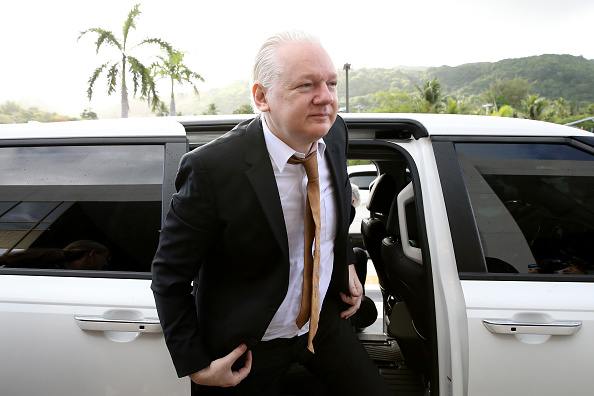Julian Assange, famous for the Afghan and Iraq war logs, is set to finalise a plea deal to see him return to Australia as a free man.
The founder of Wikileaks, a whistleblowing website, arrived in the Northern Mariana Islands, a US territory, to finalise the process.
Assange spent five years in a UK prison fighting extradition to the US.
For 14 years, US prosecutors pursued Assange for leaking classified military information.
Last week, he agreed to plead guilty to a single espionage charge, significantly reduced from the original 18 charges he faced. The plea agreement grants him credit for time served in the UK, enabling him to avoid further US custody.
While US authorities claimed the leaks jeopardised national security and endangered lives, Assange’s supporters viewed his actions as upholding free speech and journalistic integrity.
WikiLeaks gained notoriety for releasing documents related to the Iraq and Afghanistan wars, exposing alleged war crimes and shedding light on controversial U.S.-led military operations post-9/11.
Several of WikiLeaks’ disclosures garnered international attention and sparked widespread debate.
Helicopter attacks
In 2010, WikiLeaks released a 39-minute video showing a US military helicopter attack on civilians in Baghdad, Iraq.
The footage, which included audio of pilots being urged to “light ’em all up,” showed the shooting of people and a subsequent attack on a van that arrived to help the wounded.
The incident resulted in the deaths of several civilians, including two Reuters employees.
This disclosure ignited international controversy, bringing intense scrutiny to the US military’s actions in Iraq and its broader Middle East operations.
Afghan and Iraq war logs
WikiLeaks released over 90,000 US military documents related to the Afghanistan war. These files revealed several unreported incidents of the US military killing hundreds of civilians.
It also published an even larger cache of 400,000 documents related to the Iraq War. Known as the Iraq War Logs, these records provided firsthand accounts from US troops on the ground.
The leaks were the most extensive release of military documents in US history.
Reaction to Assange’s release
The news of Assange’s release prompted many people to express their support on social media.
Incredible news from @wikileaks: Julian Assange has been freed from Belmarsh prison after 5 years. A symbol of principled truth-telling in the West, he was persecuted for exposing grave crimes committed by the US and UK during the global ‘war on terror’ https://t.co/1onb1s9764
— Muhammad Rabbani (@rabbanitweets) June 25, 2024
Julian Assange is free.
— Jeremy Corbyn (@jeremycorbyn) June 25, 2024
Julian exposed the crimes of the powerful. His incarceration was — and always will be — a grotesque miscarriage of justice.
Never stop fighting for the truth. Never lose hope. Never, ever give up.
My dear brother Julian Assange is free! We struggled, fought, and prayed for many years for this wonderful moment! He also should be pardoned immediately because he committed no crime. He simply exposed the barbaric crimes of the American empire! We must free all of our other… pic.twitter.com/kJwFkvUA9J
— Cornel West (@CornelWest) June 25, 2024
Julian Assange was persecuted by the US for one reason alone: he exposed the crimes of US imperialism.
— Owen Jones (@OwenJones84) June 25, 2024
It’s the US butchers of Iraq and Afghanistan who should have been jailed, not the ones – like Assange and Chelsea Manning – who exposed the crimes. https://t.co/zDVP58B7fy
















